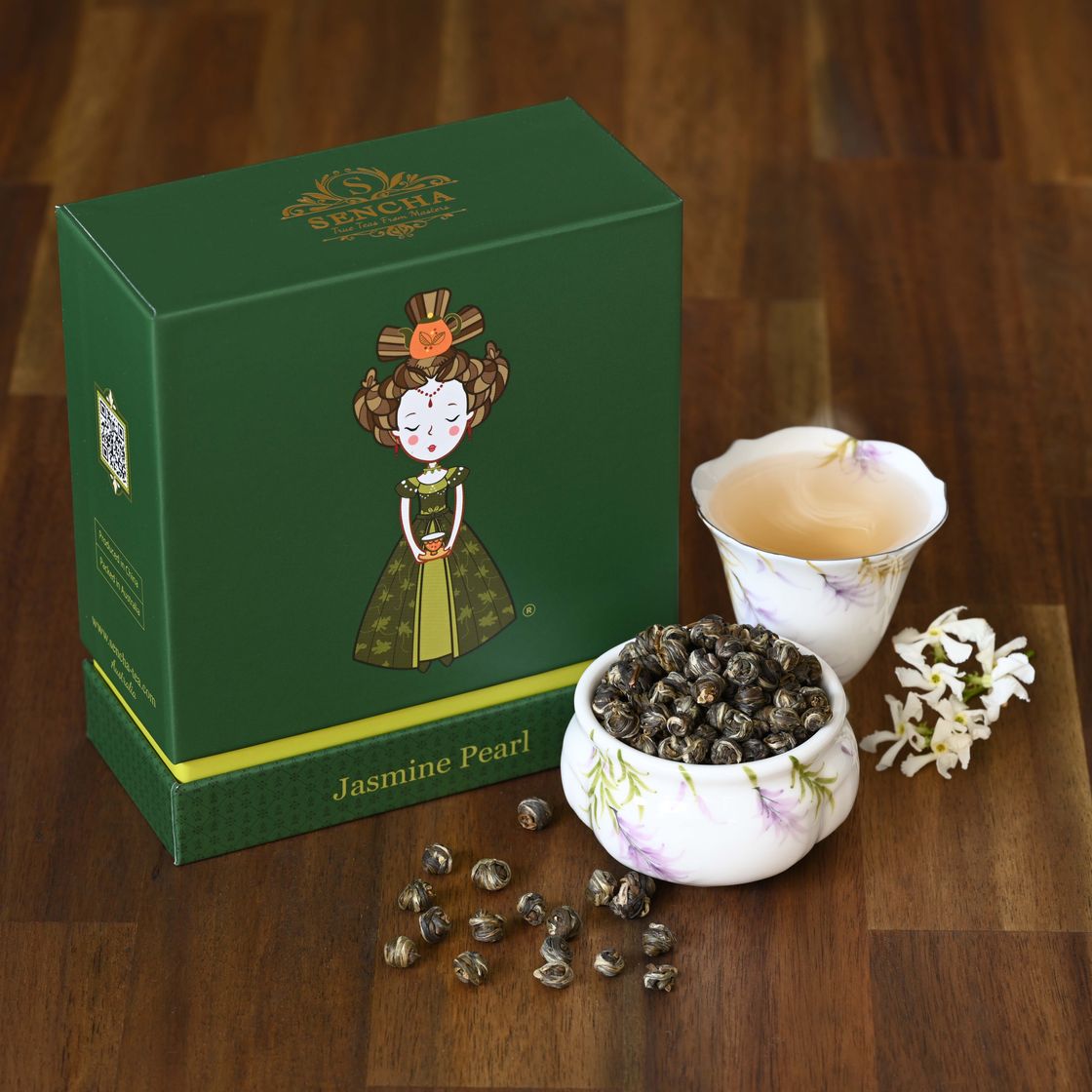
Health Benefits of Jasmine Pearl Tea
Jasmine pearl tea is a premium variety of scented tea made by hand-rolling green or white tea leaves with pure natural and fresh jasmine flowers.
There’s something truly magical about jasmine pearl tea. It’s a sensory delight, a moment of calm and elegant, a gentle escape from the rush of the world. Every cup feels like a delicate embrace, reminding me to pause, breathe, and savour life’s little luxuries.
I remember the first time I discovered jasmine pearl tea. The tiny, hand-rolled pearls looked like treasures, their green and silvery hues promising something special. As the pearls unfurled in hot water, a mesmerizing dance began—graceful, deliberate, almost meditative. The air filled with the intoxicating scent of jasmine, a floral sweetness that felt like a whisper of spring.
Drinking it, I was struck by its complexity: a balance of fresh green tea with soft floral notes, neither overpowering the other. It was both invigorating and soothing. The tea is delicate and has elegant aroma with light sweet lingering, plus a hint of melon, felt like sunshine on a cool morning. Over time, it became my ritual—a moment of peace in the chaos.
Jasmine pearl tea connects me to a tradition rooted in the mountains of Fujian, China, where artisans painstakingly roll each pearl and infuse it with real jasmine blossoms. The care and artistry behind it make every sip feel like a celebration of craftsmanship and nature.
For me, jasmine pearl tea is more than a beverage; it’s a symbol of mindfulness. It encourages me to slow down, appreciate beauty, and nourish both body and soul. Whether enjoyed alone during a quiet moment or shared with friends, it always feels special, like a little gift to myself.
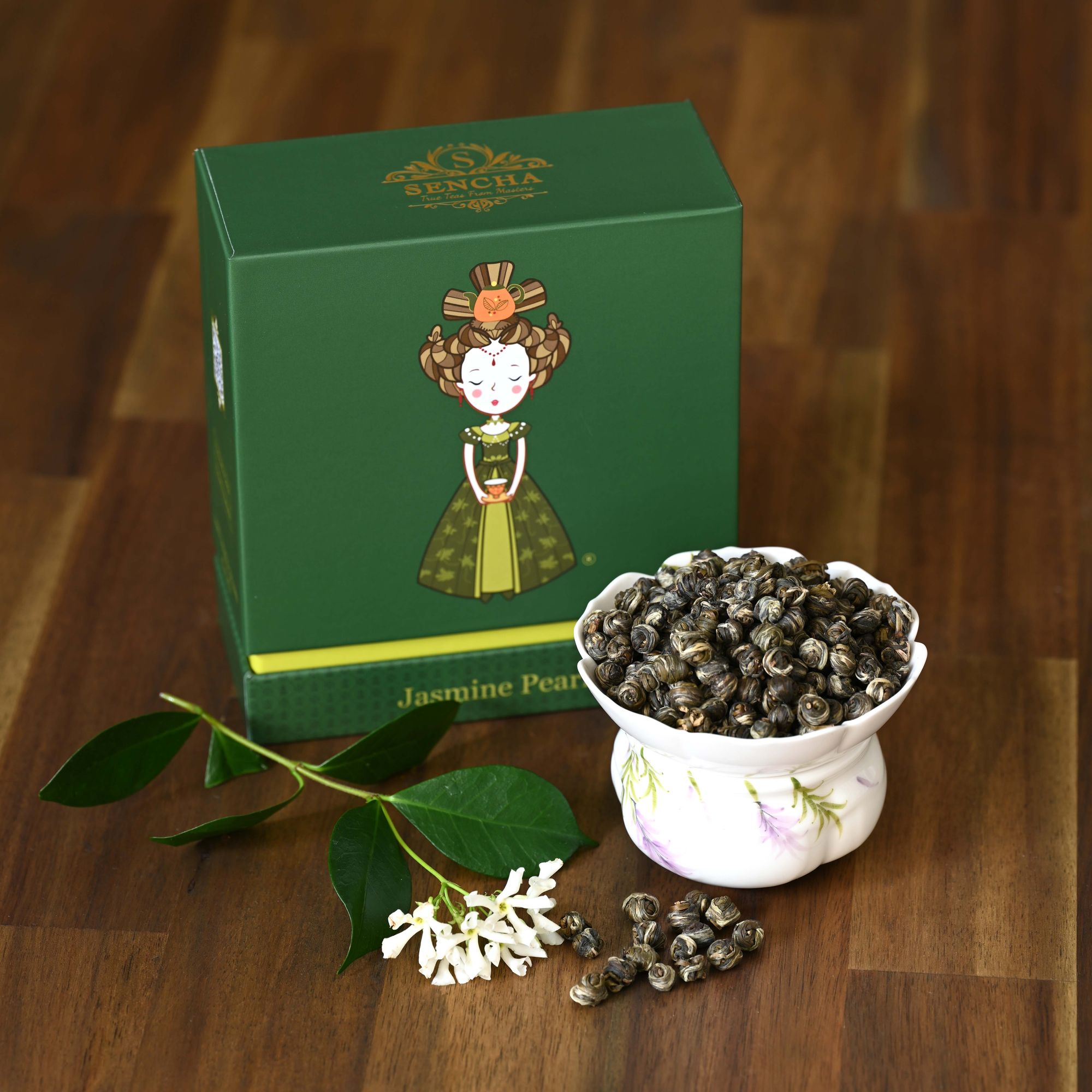
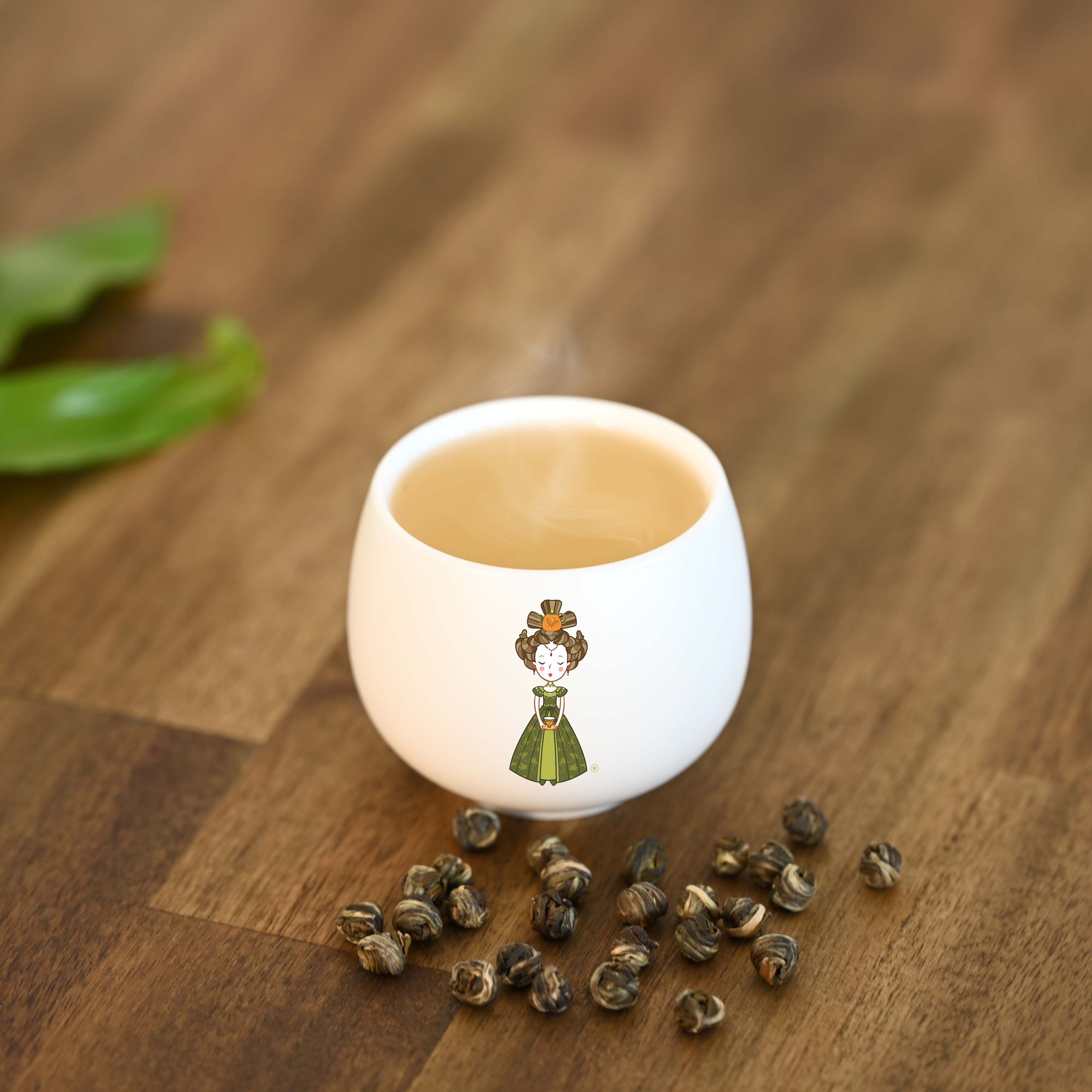
This tea is cherished worldwide for its unique aroma, delicate flavour, and there are several studies and research support to have numerous health benefits. Here’s an in-depth look at why jasmine pearl tea deserves a place in your daily routine.
1. Rich in Antioxidants
Jasmine pearl tea is packed with polyphenols like catechins and flavonoids, which combat oxidative stress in the body. Numerous studies support that these antioxidants:
- Protect cells from damage by free radicals.
- Boost the immune system.
- Reduce the risk of chronic diseases such as heart disease and cancer.
2. Supports Heart Health
Studies have linked regular tea consumption, including jasmine pearl tea, with improved cardiovascular health.
- Lower bad cholesterol (LDL).
- Promote better blood circulation.
- Reduce the risk of heart attacks and strokes.
3. Aids in Weight Management
Jasmine pearl tea is a great addition to a weight-loss plan. The tea:
- Boosts metabolism, encouraging fat oxidation.
- Suppresses appetite naturally.
- Is calorie-free, making it a healthier alternative to sugary beverages.
4. Reduces Stress and Promotes Relaxation
The enchanting aroma of jasmine has a calming effect on the mind. Combined with the soothing properties of tea. It helps alleviate anxiety and stress.
5. Improves Digestive Health
Drinking jasmine pearl tea after meals may help:
- Ease bloating and indigestion.
- Enhance nutrient absorption.
- Promote a healthy gut flora
6. Enhances Brain Function
Jasmine pearl tea contains caffeine and L-theanine, which work together to:
- Improve concentration and focus.
- Enhance cognitive function.
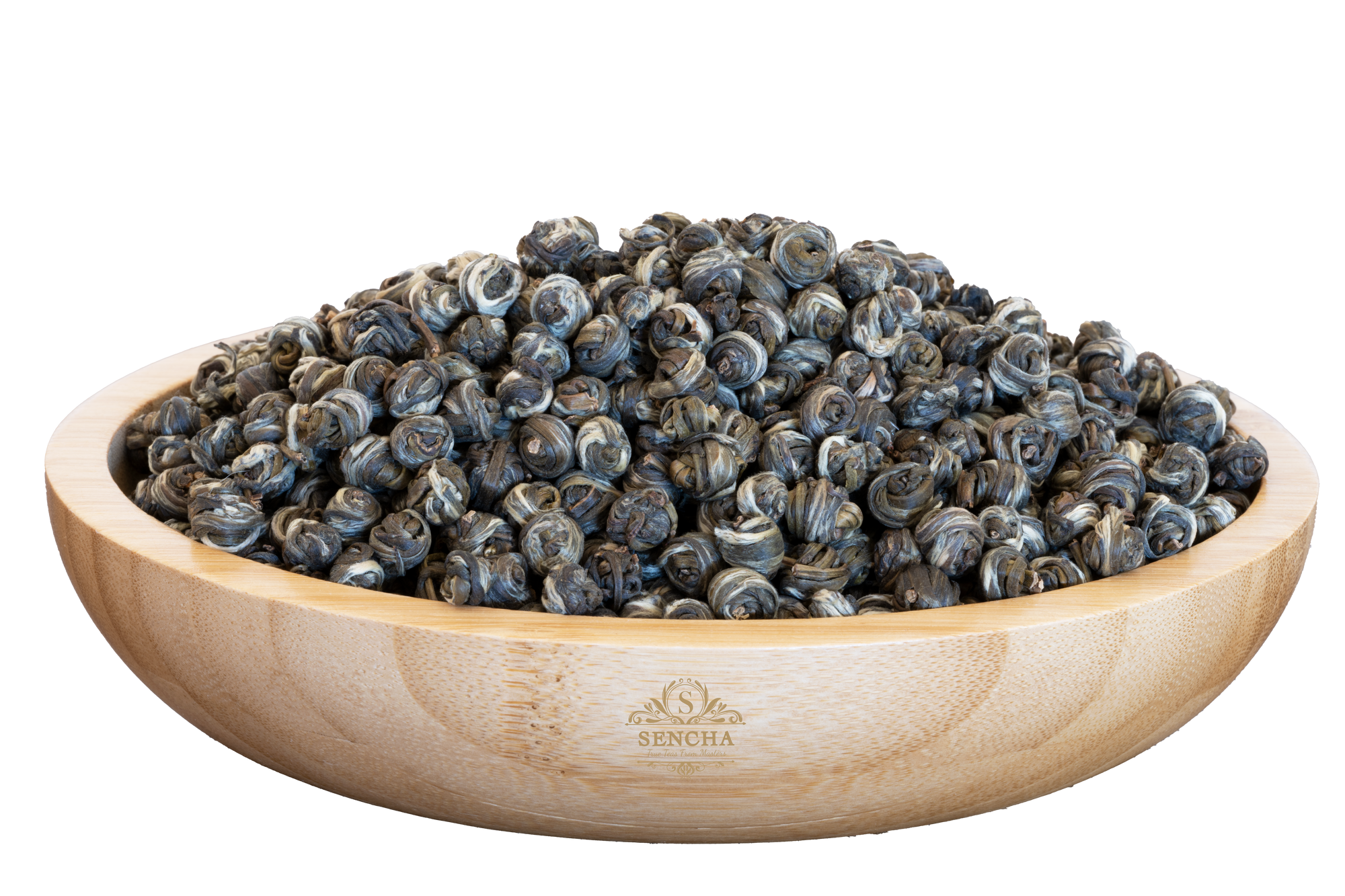
How to choose a good quality of Jasmine Pearl tea
1. Appearance
- Shape and Size: High-quality jasmine pearls are tightly hand-rolled into small, uniform balls. Each pearl should be compact, indicating skilled craftsmanship.
- Colour: Look for a mix of green and silvery-white hues. The white tips suggest tender, young tea leaves, which are typically of higher quality.
2. Aroma
- Dry Pearls: Smell the dry pearls before brewing. They should have a natural, floral jasmine fragrance without any artificial or overpowering scent.
- After Steeping: Once brewed, the jasmine aroma should feel balanced and not overpower the tea’s natural green or white tea notes. Artificially scented teas may smell overly sweet or cloying.
3. Brewing Process
- Unfurling: Watch how the pearls unfurl during brewing. High-quality jasmine pearls will slowly open into whole, intact leaves, often revealing two leaves and a bud—a sign of fine plucking.
- Water Clarity: The tea liquor should be clear and light golden-green, without any murkiness or residue.
You can follow this Jasmine Pearl brewing instruction as a guideline and may adjust to your preference.
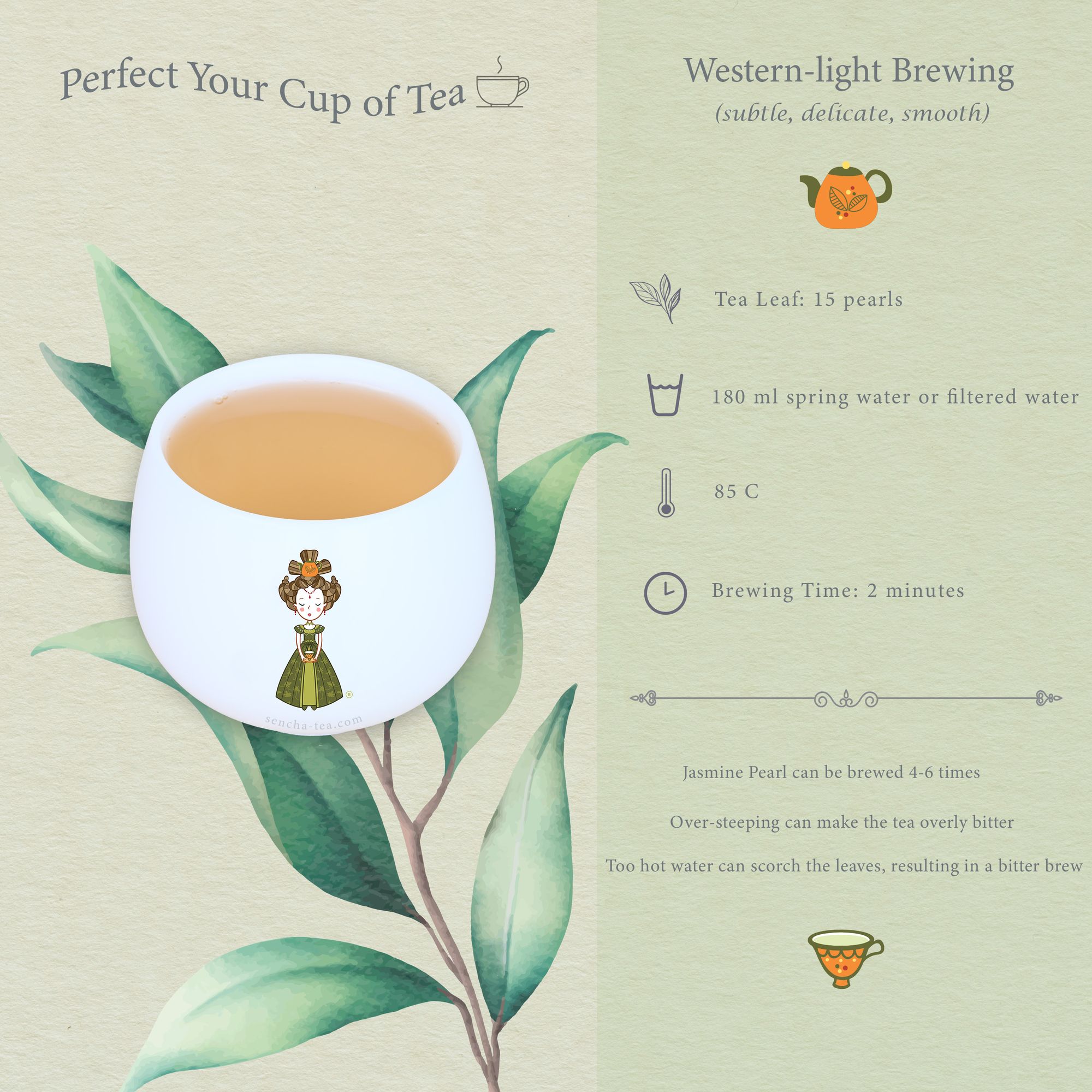
4. Flavour Profile
- Balance: Premium jasmine pearl tea strikes a delicate balance between the floral jasmine and the natural tea flavour. Neither should dominate.
- Aftertaste: The aftertaste should be smooth and lingering, leaving a refreshing, slightly sweet finish without bitterness or astringency.
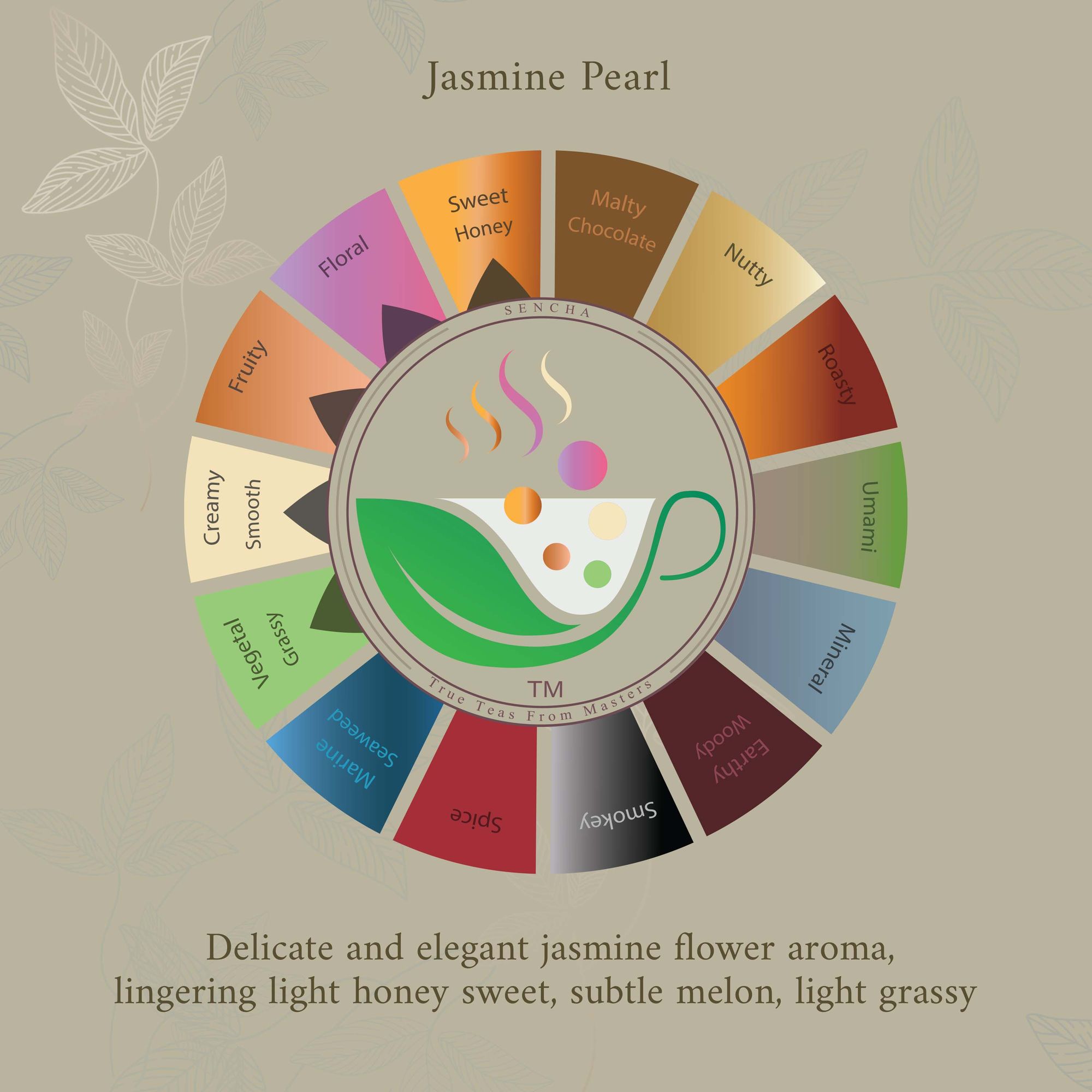
5. Origin and Craftsmanship
- Source: Authentic jasmine pearl tea often comes from Fujian, China, a region renowned for its production of this tea.
- Scenting Process: Check if the tea was scented naturally by layering jasmine blossoms with the tea leaves multiple times. High-quality teas are scented this way rather than being sprayed with artificial flavouring.
6. Packaging and Freshness
- Sealed Packaging: Good-quality tea is stored in airtight, light-proof packaging to preserve its aroma and freshness.
- Freshness: Jasmine pearl tea is best consumed within six months to a year of production for optimal flavour.
Red flag for poor quality
- Overly sweet or chemical-like aroma.
- Broken or fragmented pearls.
- Bitter or harsh flavour, which may indicate poor leaf quality or improper processing.
By using these guidelines, you can confidently select and enjoy the best jasmine pearl tea, appreciating the artistry, tradition behind this exquisite beverage, and health benefits.

